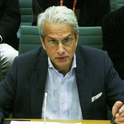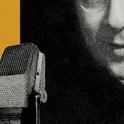Has British television coverage of any election been as good as 2010? It’s tempting to say it hasn’t. The first two leadership debates were hugely successful. The level of economic analysis by Paul Mason on Newsnight, Jeff Randall on Sky News and Stephanie Flanders and Robert Peston on the BBC has been better than at any previous election; set-piece interviews have been good to excellent, with Andrew Neil top of the pile. Unlike the Tory press, which has disgraced itself yet again with the Clegg Nazi (non)story, television coverage has been largely impartial; fair but tough. Yet all is not well.
It’s important to remember that we’re only talking about three channels. There have been two winners in the TV coverage—the BBC and Sky News—but the rest have been nowhere. ITV messed up the first debate: bad titles, terrible set, the wrong presenter. This week, apart from the news, ITV has only shown two programmes on the election. (There was a time when it was considered to be a serious competitor to the BBC for news and current affairs; no longer.) Meanwhile, Five and the multi-channel digital world never bothered, except for Sky. And what happened to Channel 4? No election coverage apart from Channel 4 News, and it failed to host one of the debates.
More important, though, are the less-commented upon absences, which reveal much about the nature of this election.
First: race, gender and class. The coverage has been dominated by posh white men and a few white women. Question Time last night consisted of five white guests and a white presenter. Last week the panel was five white people and Shami Chakrabarti, director of Liberty. Newsreader George Alagiah and political reporter Reeta Chakrabarti on the Ten O’Clock News and studio guests Diane Abbott and Gurinder Chadha on This Week, were the only non-white speakers to discuss last night’s second debate in two and a half hours on BBC1. The “Making it Clear” promo for the BBC’s election coverage is, in Greg Dyke’s famous phrase, “hideously white.” It was the same story on Sky, as Kay Burley handed over to Adam Boulton.
The same goes for class. The presenters are as posh as the party leaders. But most striking, especially to a time traveller from 1974 (when we last had a hung parliament), is the almost complete absence of speakers from the TUC—or indeed from the working class at all. Business leaders talk about the rising cost of national insurance and figures from the City warn about the costs of a hung parliament. Apparently, union leaders have no views on any of this. This is the greatest single triumph of Thatcherism.
The rest of the world has also strangely ceased to exist—apart from American experts on TV debates and the (very) occasional journalist from Newsweek or Time. Otherwise, there have been virtually no foreign journalists or commentators. Our politicians’ views of the EU are tremendously important. European views of our election, apparently, are not.
Even more puzzling has been the absence of satire on television. No successors to Spitting Image. There is Have I Got News For You, of course, but Bremner, Bird and Fortune have vanished, along with the rest of Channel 4’s election coverage.
And perhaps the most telling absence has been that of intellectuals. No political or social theorists to analyse “broken Britain.” No economists or economic historians to place the deficit in perspective. No historians (apart from one glimpse of Starkey and two of Schama) or cultural critics. No Andrew Roberts or Niall Ferguson, no Giddens or Gray, no Skidelsky or Runciman. All that 24-hour news to fill and it’s been handed over to body language experts (both of them), bloggers, old politicians, pollsters and a huge army of print journalists. Not quality journalists like John Lloyd, Martin Jacques and Neal Ascherson, but wall-to-wall Rawnsley and Daley.
Why is this? Is it because intellectuals can’t be trusted to play the cosy game of who’s up or down in the polls? “Cameron’s won the debate,” screeched Kay Burley last night, as if that phrase meant anything, especially as the poll she cited was overtaken by others putting Clegg first. Compare that nonsense with John Gray’s superb piece on contemporary Conservatism in the current LRB, or Tony Judt’s attacks on Blair and what’s become of social democracy over the past decade
This absence matters because it contributes to our obsession with leaders and personalities—polls and Cleggmania—instead of looking at what has happened to Conservatism since Thatcher, or new Labour since the market collapsed. We need analysis of political and social movements over decades, rather than instant polls that are superseded in seconds. Without this we, the electors, are quick to feel let down by individual politicians, rather than understanding the inherent contradictions of political parties and ideologies. Hence the obsession with “change,” the dominant word of this campaign, rather than the realisation that change is impossible once social democracy can no longer be funded properly. Where does this lead? The politics of smooth PR men. Clegg, Cameron and Blair. Brown (Esau to Blair’s Jacob), we may recall, was never elected prime minister. Too grumpy and swarthy for the new televisual age of permanent spin.
Oddly, you get a clearer sense of Britain today from other programmes. The return of the sitcom Outnumbered (aired just after the second debate) offers a glimpse of another Britain, where working parents struggle not just with their diabolical children, but with the new times; they struggle to keep their heads above water in their little terraced house, unable to afford private schools for their children (unlike the people next door). Decent, hard-working people— Pete and Sue Brockman are middle class, but unable to aspire to the quality of life that that would have meant 40 or 50 years ago. They are simply ground down by the realities of life in Brown’s (or Cameron’s) Britain.
Meanwhile, the second world war is back in vogue: Dr Who did battle with the Daleks last Saturday, helping Winston Churchill at the height of the battle of Britain, while the new series of Outnumbered began with a trip to HMS Belfast, as the Brockmans try to help Karen with her history project. All this stuff about Churchill and the second world war might have seemed remote from the current election—but, of course, as soon as Europe was cut off by clouds of volcanic ash, all the talk was of Dunkirk and the Armada. It doesn’t take long for Britain—and both our politicians and broadcasters—to hit the default button and go back to our glorious island story; the story Brown and Clegg are trying to drag us back from, and which many Tories and UKIP voters still long for.
That’s the real Britain our television brought us this election year. Lives of quiet, genteel desperation in Outnumbered; and fantasies of a past we never left, in Dr. Who. Somewhere between these realities and fantasies, an election is going on. But to make sense of this we need historians and cultural critics, not body language experts and pollsters.

Election 2010: how telly let us down
The 24-hour news cycle and the televised leadership debates have reduced politics to numbers and soundbites. You'll learn more about Britain today from the BBC's new sitcom
April 23, 2010












